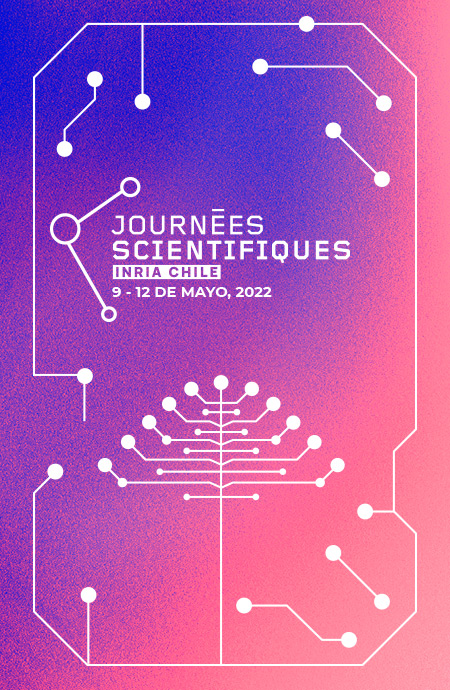



Paula Jofré is a world-leading expert in Galactic Astronomy, working on the analysis of stellar spectra to understand the physical processes that shape the Milky Way. She is an associate professor of the Astronomy Nucleus at the University Diego Portales, where she leads the Millenium Nucleus ERIS. She has multiple distinctions, such as been appointed as one of the 23 Ambassadors of the Image of Chile in 2021, one of the TIME 100 Next by TIME in 2019, one of the 10 Scientist-to-Watch by Science News in 2018, and one of the 100 Chilean Women Leaders by El Mercurio and Mujeres Empresarias, twice, in 2011 and 2018.
Paula will open the fourth and last day of the Inria Chile 2022 Journées Scientifiques, with her keynote "Navigating through the multidimensional spacetime of the Milky Way", in which she will review Galactic archaeology’ state-of-the-art, which aims to understand how galaxies form and evolve, using the Milky Way stellar populations as its main laboratory. The field is currently going through a revolution because of the data provided by the European space mission Gaia which contains information of more than one billion individual stars, and the complementary data from ground-based telescopes providing spectra for millions of stars. This huge and multidimensional dataset is new and complex, and offers new opportunities for developing methods in AI to extract information, interpret the data, learn about galaxy evolution and discover the unknown.
It is the study of the structure and evolution of our galaxy, the Milky Way. To do so, we combine and study the data of billions of stars, their movements, their chemical compositions, their positions and their age. Thus, the distribution of these properties are then compared to models of spiral galaxy evolution to infer the processes that have formed our galaxy.
There is much data we have on stars in the Milky Way. We can no longer just download them onto our laptops and make two-dimensional graphs that look for correlations and distributions of different properties. In that context, we must intelligently choose which data to download and store in our laptops and which features we believe are related in order to study them. For instance, we can select stars in a certain direction, or in a certain range of brightness.
Digital Sciences allow us to do more complete studies, which allow us to have a more complete vision of our environment. Likewise, they allow us to learn to navigate better in the complexity of the data and focus on dimensions that are not correlated, for example..
Chile offers opportunities to study the universe because many of the telescopes are in our country. But every opportunity comes with a responsibility. Unfortunately, the computational infrastructure is poor and there is still a lack of experience in working with such large data sets that we can now obtain from international megaprojects. To attract more human capital, I also believe that Chile has a responsibility to facilitate the migratory procedure, which often leads people to finally decide not to come and collaborate.
International collaboration has been fundamental to the progress of science for several reasons. First, no team has the complete experience to solve a complex problem, but in collaboration the different experiences are combined efficiently. The same applies for infrastructure. This –which is poor in Chile– because of international collaboration it can be obtained and, hence, it generates knowledge. Finally, I believe that international collaboration makes teams more diverse, due to the different cultures of each nation. Diversity is beautiful, interesting and motivating. In a diverse environment, creativity abounds, and creativity is one of the fundamental forces for science.
Our country, in order to achieve full and efficient international collaboration, must improve its immigration processes. Chilean universities, unfortunately, witness how much international talent, who wants to come to collaborate and contribute, does not arrive because the immigration procedures are inefficient.
Opportunities like this serve to break the routine, to learn about new ideas, or to make connections between problems that seem to be very different, but are ultimately similar. That seems very valuable to me. Astronomy is just one of the many motivations to generate talent and develop technology. Astronomy can only be fed when the other disciplines are fed. In fact, so it is with all disciplines.